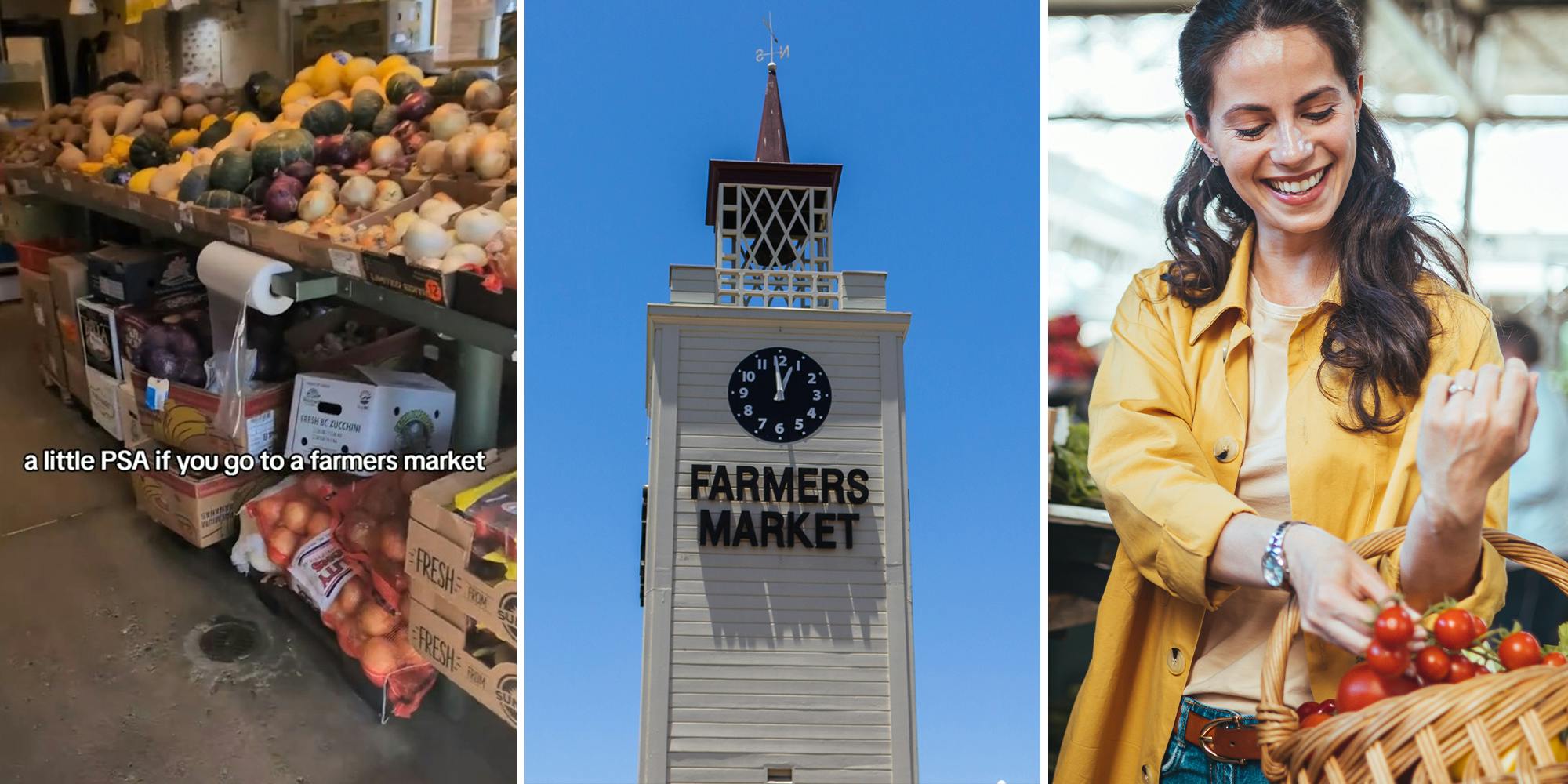‘They’re getting their same stuff from Kroger and Walmart’: Shopper exposes how fruit vendors at the farmer’s markets may be scamming you

That "locally grown" produce you just bought at the farmer's market? Turns out it might be a scam. Here's one trick to figure it out.
Farmer's markets are beloved public events where farmers and vendors sell what's supposed to be fresh, locally grown, and often organic produce and products—like fruits, vegetables, eggs, honey, soaps, meats, flowers, and baked goods—directly to consumers.
Depending on your area, the farmer's market may or may not be more expensive than your local grocery store, but the trade-off is that you're supposed to be getting better quality while supporting the local economy.
Some supermarkets, on the other hand, tend to have lower prices than farmers' markets since they buy in large quantities and source from multiple places, including wholesale distributors, regional and national farms, and, yes, local farms too.
Produce at the supermarket is usually less fresh because it's often had to travel for much longer. Supermarkets also sell produce that's out of season, so the taste may not always be the best.
Well, it turns out that if you've been making an effort to hit up your local farmer's market, there's one way to find out if what you're getting is actually local goodness or the same generic stuff from the supermarket.
How to tell if you're being scammed
In a viral video with more than 1.6 million views as of Saturday, TikToker Matthew (@theprogramminggeek) shared his PSA.
"A little PSA," Matthew begins as he strolls through a farmer's market, panning across vegetables with stickers. "If you go to a farmer's market and they have PLU stickers on all their produce, you're not actually buying from a farm, you're actually buying from the wholesaler, and they're getting their same stuff that is from Kroger and Walmart."
He concludes, "So you're not actually buying anything different."
@theprogramminggeek #farmersmarket #scam #themoreyouknow ♬ original sound - Matthew
Is it true?
Years back, Tampa Bay Times food critic Laura Reiley uncovered this exact phenomenon at a local farmer's market. She spoke to a seller who boasted about growing 15 different items on his farm, but when she went to the farm's address, she found two acres of abandoned, weed-laden land.
And when she went to his home, she found stacks of boxes with various produce company names on them.
"If Gary Parke is not a farmer, he’s a reseller. If he is a reseller, it means his claims of 'local,' 'fresh picked' and 'pesticide free' should be questioned," Reiley wrote in the investigation. "And if he is a reseller, it means the managers of markets where he vends have failed to vet his claims, even minimally."
Only some states have definitions and rules around what can be sold at a farmer's market and who qualifies as a local farmer, HuffPost reported. For example, the Rutgers Gardens Farmers Market in New Jersey allows products grown within a 100-mile radius and mandates that a seller must clearly label any items they sell from another grower/farm.
New Hampshire, on the other hand, has a clear definition of a farmer's market, limiting it to farmers selling produce and products exclusively grown on their own farms. They also explicitly exclude wholesalers.
People in the comments section of Matthew's video had a lot to add.
"My 'farmers market' has vendors selling blueberries in November. There’s no way those are locally grown," the top comment, with more than 14,000 likes, read.
"My dad used to help run a major farmers market in our area. We kicked sellers out who couldn't prove they grew their own stuff," a person said.
"Our local farmers market stand is always seen buying all the pumpkins from Aldi every fall buying a $2.50 pumpkin and charging $15-20 at their stand. So scammy," another shared.
The Daily Dot reached out to Matthew for comment via Instagram and TikTok direct message.
The internet is chaotic—but we'll break it down for you in one daily email. Sign up for the Daily Dot's web_crawlr newsletter here to get the best (and worst) of the internet straight into your inbox.
Sign up to receive the Daily Dot’s Internet Insider newsletter for urgent news from the frontline of online.
The post ‘They’re getting their same stuff from Kroger and Walmart’: Shopper exposes how fruit vendors at the farmer’s markets may be scamming you appeared first on The Daily Dot.
